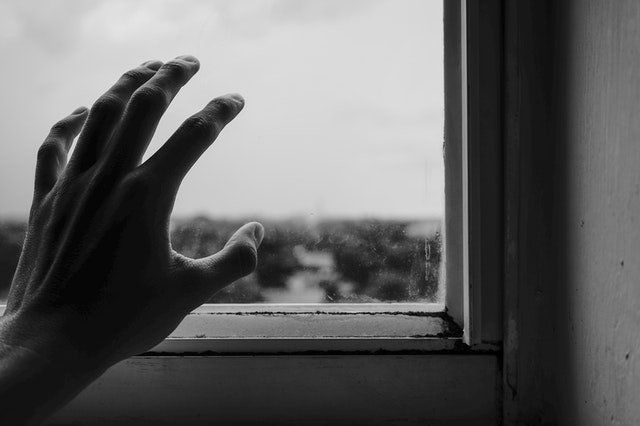How to Support New Grads With Post Graduation Anxiety
It’s graduation time! Graduations mark the end of one stage and the start of another. Post-graduation anxiety is very common but doesn’t get enough attention. Learn what it is and how to support a new grad dealing with it.
“Congratulations to the Class of…”
People tend to focus on how exciting the next chapter is. There’s a lot of focus on graduation parties and summer plans.
Adults want to know, “what will you major in?” or, “what’s next?”
Not enough people ask, “hey, how are you handling all of this?”
New grads are often ashamed of the truth: “This is way tougher than I thought it would be.”
Post graduation anxiety is real, both after high school and college.

What is post graduation anxiety?
Transition + Change = Spikes in Anxiety and Depression
Unfortunately, there isn’t enough focus on how hard this phase is. Almost everything in a new grad’s life is about to change quickly, even if they’ll continue to live at home.
These are three key transitions that bring on or exacerbate anxiety and depression in the high school and college grads I see:
- They’ll lose structure and stability. In both high school and college, they had schedules, deadlines, semesters, grades, and other tangible markers of time and progress.
- Losing a high level of stability and predictability puts many people in a free fall.
- Lack of outside structure is part of why we see a spike in anxiety and depression in college freshman and new college grads in the fall.
- They’ll have to take on more responsibility. Although they had freedom in high school and college, most things were taken care of for them. They had teachers, mentors, and parents monitoring them.
- Now they’ll have to make more decisions on their own.
- They’ll have new responsibilities include taking out loans, choosing classes and/or a major, setting up schedules, looking for work, and/or living on their own.
- That’s tough for anyone, but even tougher for someone who already doubts what they can handle.
- Their relationships will change. Friendships and/or romantic relationships will shift. Some will end. The sadness and insecurity that comes with that is tough for everyone. It’s even harder when you’re already struggling with loneliness and low self-worth.
- Teens and young adults who struggle with anxiety and depression have an even harder time making new friends and finding a support network.
- Many new grads will experience a new kind of loneliness and have to figure out a new social network.
- They’ll look at social media, see filtered photos and exciting news, and feel that everyone else is doing better than them. This could make a bad situation worse.
Why You Need To Help a New Grad With Post Graduation Anxiety
For young adults who’ve struggled with anxiety or depression, these transitions can make symptoms worse and even send them into a flare. They like and need stability and are extra vulnerable when that’s taken away.
For others, post graduation anxiety may be their first experience with burnout, overwhelm, panic, and/or depression.
Either way, this can negatively impact their ability to handle the rough waters ahead.
They will likely be too overwhelmed or sad to know what they need or ask for help early on. What usually happens is they hold it in because they see that everyone around them is “fine” (little do they know…).
At some point, they wind up in a tail spin, not knowing what to do how to move forward. They think they need to have everything figured out and often feel ashamed if they don’t.
We can’t pause life for anyone, but we need to make sure they’re set up to succeed as best they can. Their success may look different than what you imagined. It may be different than what others their age are doing. Everyone needs to remember that progress in any positive direction is better than nothing.
Definitely celebrate a new grad’s accomplishment. Let them know how proud you are and cheer them on to their next life phase.
However, if your grad has a history of anxiety or depression or is struggling now, it’s extra important to support and build up their emotional reserves.
How to Help With Post Graduation Anxiety
To help with post graduation anxiety, you need to take a 2 pronged approach:
- Help them stay physically healthy or rebuild their health.
- Many new grads, even at the high school level, are completely burned out. They pushed at maximum capacity to achieve the highest they could. Now they have to go conquer the next stage with a body that’s been through the ringer.
- It’ll be important for them to sleep, eat well, get a physical, and exercise. If you need to pick one, focus on sleep. It’s crucial for healing.
- Remember (and remind them) that physical recovery can take a few months. There’s a reason professional athletes take time off in between seasons.
- Help them build up emotional strength so that they can make tough decisions as well as handle changes, transitions, and set backs.
Next Steps
Support your grad’s transition to a new life phase by combining love, support, and accountability.
If you notice that they’re having a tough time with the changes, transitions, and decisions, suggest they seek out support.
- Explain what burn out is and that it’s normal. Let them know that post graduation anxiety happens to most people. Use some of the reasons in this post or just let them read the post on their own. It’ll answer the question, “why am I feeling like this?”
- Talk about therapy as a positive experience in which they can consult with an expert who can help them be less overwhelmed and more successful. Pro athletes work with sports psychologists for the exact same reason.
- Follow up with them to see how they’re feeling, where they see progress, and where they feel stuck. Come up with a plan together for how to help. Ask where, how, and when you can help. If you ask the questions you want answered (e.g., so when are you getting a job?) when you want the answer, they’ll shut you down.
- If they tell you they don’t want to talk about it, acknowledge this is hard. Acknowledge most people don’t want to talk when they’re scared or confused. However, avoiding the issue only makes it worse. Talk about the best way to partner on this.
(Are you rolling your eyes yet? It’s either that, gritting your teeth, or at least one “whatever!” Yes, that’s totally normal. No, you’re not a bad parent.)
- Avoid comparing them to others who seem to have it figured out. If they bring that up, remind them that everyone struggles. Most people just keep it a secret.
We work with new high school and college grads with post-graduation anxiety or confusion to help them thrive and launch.
Please give us a call when you’re ready to give them the graduation gift that will help the most.
You’ve done so much to help and support them. You deserve just as much credit and celebration.
Congratulations on your accomplishment as well!
Here’s to a successful new chapter for all of you.
Please contact us to set up an appointment.
We can help give you information, a map for next steps, and hope that you can have the life you want.
Wishing you the best,
Dr. Levy
Director
Dr. Ronit Levy is a clinical psychologist and director of Bucks County Anxiety Center in Newtown, PA. She specializes in treating teens and adults struggling with anxiety due to Anxiety Disorders, OCD, chronic illness, and life events. Dr. Levy trains and supervises other therapists and presents on mental health in the community.
Anxiety & OCD Blog Latest Posts
About Us
The therapists who practice at Bucks County Anxiety Center work with teens (ages 14 and up) and adults struggling with anxiety and OCD.
All Rights Reserved | Bucks County Anxiety Center







